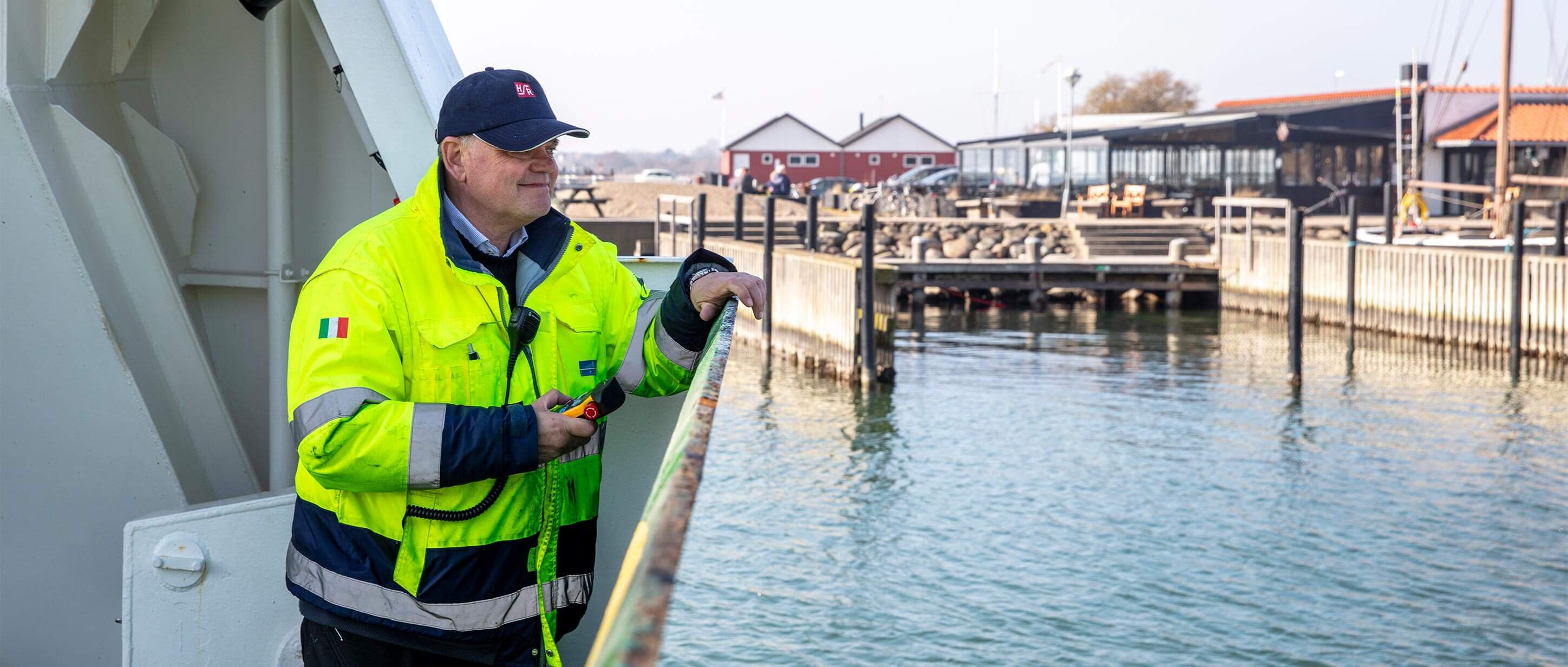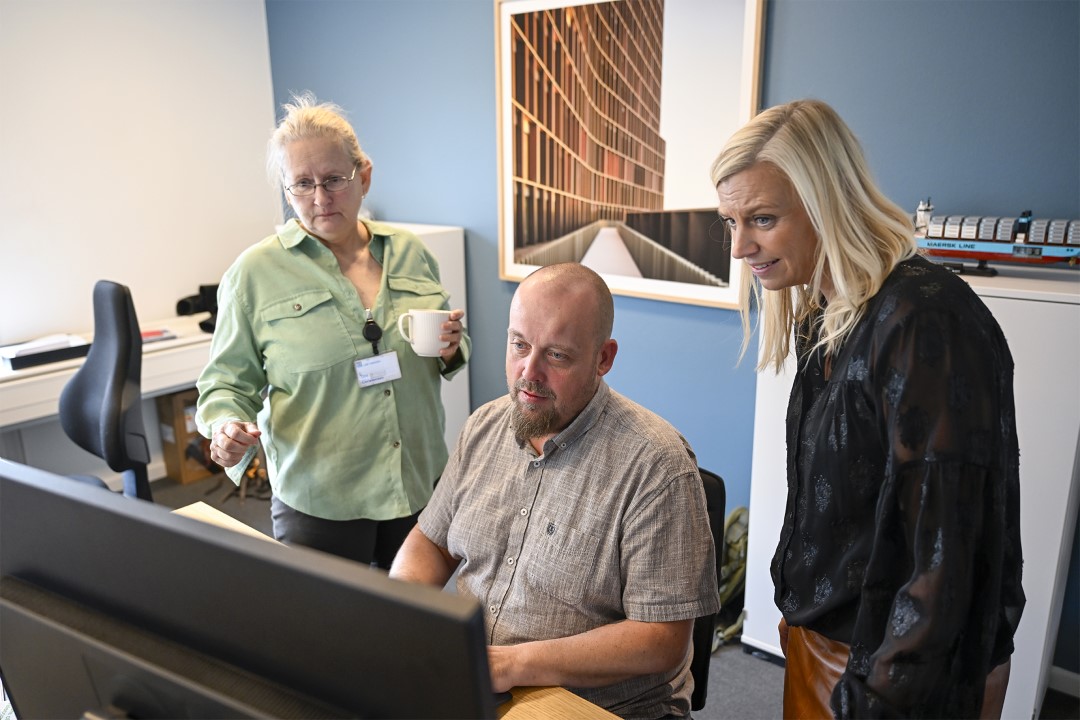When a seafarer is injured on one of UFDS' members' vessels, a lengthy legal process is initiated from the employer contacting us until a decision is made on possible compensation. Learn more about the process here.
As a mutual insurance company, the Danish Shipowners’ Accident Insurance Association has insured personnel at sea on Danish-flagged vessels for more than 120 years. We have taken care of hundreds of victims and done our part to guide them in the best possible way from accidents to possible compensation.
But what actually happens when a seafarer is injured at sea, and the damage is of a magnitude that will result in the loss of working days, and thus calls for a report to the insurance? This article takes a closer look at that.
First, the employer must contact UFDS, which we would very much like to see done via our own application form. It is the same as the Danish Maritime Authority's, except that we also ask for mail and phone number of the seafarer.
Both pieces of information are important as it allows us to contact the seafarer quickly and safely, and in a way where we know that the injured party have received the information – unlike letters, which can take several weeks to arrive and can be lost in the mail.
In addition, there are the lingual challenges related to the many nationalities employed on board the Danish ships, which can be better handled electronically through, for example, machine translation.
When UFDS receives an application, we assess whether we lack information in relation to determining if we are dealing with a work-related injury and to be able to assess the extent of the injury. The accident can easily be well described in the report, but sometimes it is an advantage to have the seafarer's own words for what has happened. In other cases, we may just need more information.
If we lack information, it is because we must assess whether the injury is covered by the insurance, after which we must assess whether the case can be closed immediately or whether there is a risk that the seafarer will have permanent disability and/or cannot continue his or her work as a seafarer.
It is the rules of the Workers' Compensation Act that emphasize that cases must be sent to Labour Market Insurance (AES) if certain conditions are met (risk of permanent disability and/or the seafarer can no longer work at sea).
Many injured individuals report that they have felt very alone in the situation, which has been a stress factor for them, and that our special offer has proven beneficial for them in this regard.
Increased processing time a hassle
As an insurance company, it is UFDS that decides on questions concerning treatment costs. Thus, we are not obliged to ask AES, but we can do so, and if expenses arise that UFDS does not believe should be covered, then the question can be sent to AES for assessment.
AES will decide in the cases we send them whether the injury can be recognized as work-related, or it should be dismissed. If the injury is recognized, AES will also decide whether the seafarer is entitled to compensation for permanent disability or compensation for loss of earning capacity.
If UFDS or the seafarer do not agree with a decision from AES, an appeal can be filed. AES will then first assess whether they can uphold the appeal. If so, they change the decision and make a new one (which is also a potential subject for complain).
If AES cannot uphold the appeal or an appeal is lodged against the new ruling, the case will be sent to the Danish Appeals Board (AST), which is the highest administrative appeal authority in the area. Decisions of AST can therefore not be appealed. If one is dissatisfied with an AST decision, the option is to sue AST – that is, go to court.
AES is a public authority handling approximately 60,000 cases a year, which in 2022 led to a pay-out in damages of DKK 1.6 billion. This places great demands on the organization's case workers, and unfortunately, we have seen a tendency for AES to have had an increased processing time, which prolongs the injured party's waiting time for compensation. This is unsatisfactory and UFDS is doing everything possible to reduce this waiting time.
As part of their case management, AES collects information such as questionnaires, medical records from doctors and hospitals, information from municipalities (if the seafarer is a Danish citizen) and so on. When the case concerns a foreign seafarer, UFDS has agreed that we collect information on their behalf.
Thorough legal treatment by the Danish Appeals Board
In general terms – leaving room for major variations – a three-to-six-month time span is to be expected for AES to come to a decision on recognition or rejection. After that, it may take a further six to 12 months before they decide on permanent disability and another six to 12 months before they decide on loss of earning capacity.
Depending on the individual case and its circumstances, it can easily take two to three years before a case is finally closed in AES, and it is – regrettably – not uncommon for it to take even longer. Part of this is due to the fact that AES is dependent on the injured party's municipality and their treatment in relation to clarification/sick leave, while for foreign seafarers it can drag on because it can be difficult to obtain, for example, medical records from the Philippines.
When we receive a decision from AES, we decide whether we agree with the decision or whether it is wrong and must be appealed. If the seafarer or UFDS appeals against a decision of AES and AES does not uphold the appeal, the case is sent to the Danish Appeals Board.
AST is also a public authority and supreme complaints body in a wide range of areas of the public sector, including occupational injuries. The processing time in AST is usually six to 12 months, but it may take longer for individual cases. It does not cost the seafarer anything to appeal against a decision – the bill is sent to UFDS.
AST handles fewer decisions than AES and assessments are carried out exclusively by lawyers, just as AST uses medical consultants in almost all cases (unlike AES). So, as a rule of thumb, one can therefore expect a very thorough treatment of the case.
For example, AST can reverse a decision made by AES, or AST can refer the case back to AES, instructing AES to retrieve further information for a new decision to be made.
AST helps to determine practice and interpret the law and how it is to be understood, and AES must generally comply with this. About 25 percent of cases sent to AST are reversed – that is, the decision is changed or referred back.
Following the Supreme Court on set-off
When it comes to payment of compensation in cases where other insurance policies are in play, UFDS works on the premise of set-off established by a recent Supreme Court ruling. This means that the right to set-off arises if the seafarer is awarded compensation for loss of earning capacity under the Danish rules and at the same time has received corresponding compensation from another (often foreign) insurance.
In the specific case, the Supreme Court ruled that compensation from the Philippine Overseas Employment Administration (POEA) is equivalent to compensation in Denmark and can therefore be set off.
In relation to other similar schemes or settlements, shipowners should therefore ensure that it is specified which part of the compensation paid relates to permanent disability, and which part relates to compensation for the injured party's inability to return to work/maintain equivalent earnings in another job.
UFDS is currently handling four cases where, based on the Supreme Court ruling, we have set off or are in the process of deciding whether we can offset the compensation that the injured party has received through POEA, or through settlement.
Three of the cases concern Philippine seafarers who were awarded compensation through POEA following an industrial injury. In these cases, we have been able to offset claims corresponding to paid POEA compensation of between approx. 10,000 and 66,600 US dollars (up to almost 460,000 DKK).
The fourth case concerns an American seafarer where the shipping company had reached a settlement in the United States following an industrial injury. Here, UFDS is investigating the possibility of offsetting around 1 million dollars (approx. 6.9 million kroner).
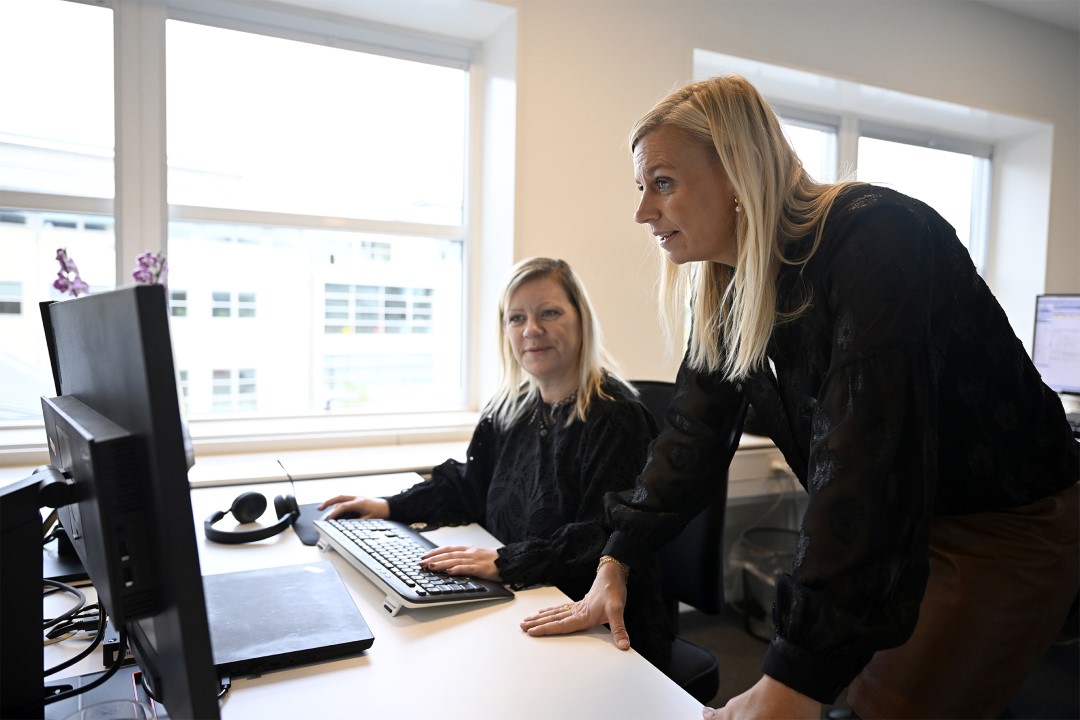
Proactive claims handling
It can be difficult to navigate the public and private healthcare system while experiencing discomfort after sustaining an injury. Therefore, UFDS offers seafarers residing in Denmark to be assigned a health professional and/or social worker in cases involving a risk of long-term absence, permanent disability and/or loss of earning capacity. It is a voluntary offer that very few seafarers refuse.
Our consultants have a background as either as social workers or nurses with many years of experience and further education in psychotherapy as well as knowledge of the special working conditions surrounding seafarers.
If we find it relevant together with the injured party, a team of social and health professional consultants will be attached to the case. Of course, the process is only initiated when the seafarer has given written consent to start-up and power of attorney to contact any processors and partners in the case.
In this case, our task will be to uncover what symptoms the seafarer is experiencing following the injury, whether relevant examinations and treatment courses have been initiated, and whether the seafarer is on sick leave and/or at risk of losing his or her job.
The consultants also refer to the injured party’s GP, if relevant, and initiate relevant treatment courses. Similarly, measures are taken to assess the need for interventions against, for example, the municipal system, or simply help to understand all the other activities the injured person encounters.
Our people know a wide range of skilled therapists in Denmark without too long a wait, if health insurance is not applicable. On this basis, they make sure to follow up on the effect of an ongoing treatment and adjust as needed if the desired effect is not experienced.
The consultant also acts as a lifeline for the injured party to call for advice and guidance if needed, which some people use. Many injured individuals report that they have felt very alone in the situation, which has been a stress factor for them, and that our special offer has proven beneficial for them in this regard.
Experience shows that such a stress factor increases the risk of developing a psychological superstructure on an occupational injury. In the event of prolonged sick leave and/or the risk that seafarers may lose their job, we therefore assign a social worker to the case, who works closely with the healthcare consultant.
The process is not finished until the seafarer has completed his or her treatment and is safely back on the job. If this is not possible, UFDS will continue our efforts.



